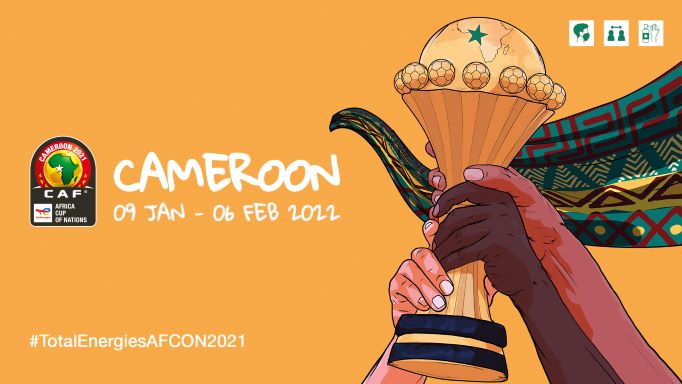It just occurred to me that Kenya was once an African football powerhouse going by CAF records. For some reason, I thought the constant complaining about the state was our game was baseless. I could not put my finger on a time when Harambee Stars did anything worth the history books of football. However, while chatting with a friend recently, he informed me that at AFCON 92, a Belgian scout invited to watch Nigeria (vs Kenya) spotted Mike Okoth Origi. What caught my attention is the way he introduced the anecdote, “It is exactly 30 years ago…” It is then that it dawned on me that it is 30 years since I watched my first football tournament – one of my earliest football memories.
Memories
I remember George Sunguti booting the ball and my father responding with his signature “to who now, to who”. It was the game against Nigeria, though I always thought it was Senegal. After checking the records, I realised Kenya did not score against Senegal, the hosts. Mickey Weche, who lived a few blocks away from us in Madaraka Estate, scored a consolation penalty in this particular match against the Super Eagles.
A closer look reveals that only 12 teams participated in AFCON 92. The previous two editions had eight teams, with Kenya featuring in both, demonstrating Kenya’s football prowess in the 80s and 90s. However, Kenya did not qualify for the 1994 competition, which could be indirectly attributed to the introduction of multi-party politics in the country. Anyway, my AFCON journey continues.
In 1994 I fell in love with the Chipololo of Zambia, especially one Kalusha Bwalya. Two factors contributed to my smooth change of allegiance. My father had recently visited Lusaka, and we had copper plates hanging on our walls. Secondly, the Zambians came to the tournament despite losing most of their national team in an aeroplane crash less than a year before. The assembled side led by the left-footed Bwalya fought gallantly, losing the final to Nigeria. The fact that Kenya did not qualify did not get my attention.
Football Politics
Come 1996, and I started to understand the politics of football and the relationship between politics and football. Kenya was to play host to this tournament edition, but our lack of preparedness dominated the news. Eventually, South Africa, fresh from winning the Rugby World Cup, was awarded the hosting rights.
Later, I came to learn Kenya’s failings were politically influenced. Notable in 1996 is that 1994 champions Nigeria were absent. They boycotted the tournament due to political tensions between Nigeria and South Africa. The Super Eagles were to be banned from Burkina Faso 98 by FIFA due to government (third-party) interference, missing out on an opportunity to dominate African football in the 90s.
Meanwhile, South Africa enjoyed the momentum that came with the end of the apartheid rule and won the tournament. Kalusha Bwalya was voted the best player. Names like Lucas Radebe, John ‘Shoes’ Moshoeu, Mark Fish and Doctor Khumalo dominated our conversations and nicknames as we took our first steps in competitive football. I played my first competitive tournament, Weche Cup, in 1997.
The Biennial Showcase
In the following years watching AFCON became more of a ritual. We were always looking forward to seeing the biggest stars in African football take the stage: Abedi Pele, Tony Yeboah, Patrice Mboma, Rigobert Song, Hossam Hassan, Mustafa Haji, Shaun Bartlett, Nwankwo Kanu, Jay Jay Okocha. West Africa and North Africa dominated the competition, with Cameroon (2000, 2002) and Egypt (2004 – 2008) managing back-to-back victories. Kenya made it to the 2004 competition but did not have much to show. However, the qualifying journey was one that every football lover still savours. The campaign was capped a late screamer by Denis Oliech against Cape Verde that ensured Kenya’s place in the showcase.
Losing Touch with AFCON
I moved to Geneva, Switzerland, in July 2009, with the next AFCON in Angola in 2010, which happened to be the same year as the World Cup in South Africa. For me, it was understandable that the tournament in Angola did not receive much attention in Swiss (European) media. All the attention was on the first African World Cup – it’s time for Africa. However, subsequent editions did not receive much coverage, even after it was moved to odd years starting 2013 to avoid clashing with the World Cup.
With the limited interest from the media, I also lost touch with the competition, occasionally reading online news and watching the crucial matches. I believe media is critical for developing sporting products and driving consumption.
A New Era?
I moved back to Kenya in March 2019 just in time for the first AFCON to be played in June/July (Nothern hemisphere summer) to ‘align’ with the European (global) football calendar. CAF had also approved another significant change, increasing the number of teams from 16 to 24. I believe that AFCON should be played at the best time, with weather/climate the critical factor depending on the host country.
I also thought expanding the competition would water down the quality (like Euro 2016) and impact viewership. Judging by the 2019 AFCON, this is not the case though it waters down the qualifiers, which become less competitive. For example, despite a not so convincing performance, Kenya qualified for the 2019 AFCON. This was after Sierra Leone was disqualified from the tournament for the not so new government ‘interference’ in football affairs. It was also noteworthy that the competition was played in Egypt, a last-minute replacement for Cameroon due to a lack of readiness and security concerns.
AFCON 2022
Cameroon hosts the 2021 edition, which is being played in 2022. Again lack of preparedness and the pandemic have dominated the lead up to the tournament. A second postponement would have been disastrous not only for Cameroon but the continent as a whole. I believe the strong voice of the recently elected FECAFOOT President, Samuel Eto’o, had a lot to do with the decision to go ahead. Confident leadership is essential in African football, and the former Barcelona striker has it in abundance. Some say he’s angling for the CAF presidency, but that remains to be seen.
Meanwhile, the action has kicked off in Cameroon. Two good matches pitting the hosts against Burkina Faso and an impressive Ethiopia against Cape Verde followed a memorable opening ceremony. I am impressed by the quality of the games, especially from countries such as Ethiopia, Siera Leone and Zimbabwe, which were previously not regarded as football powerhouses on the continent. We are missing South Africa, DRC and Zambia but are happy to have first-timers like Gambia and Comoros. Let’s sit back and enjoy the 33rd edition of The Africa Cup of Nations.





